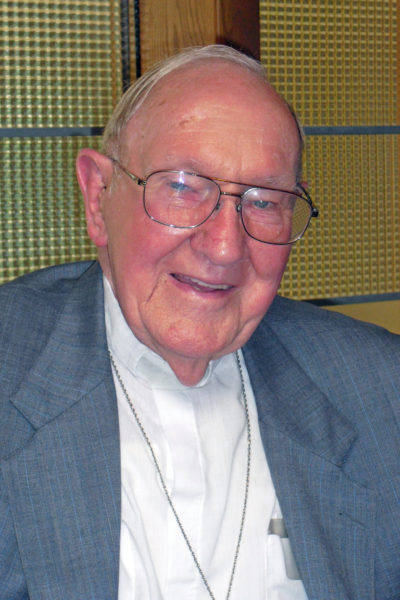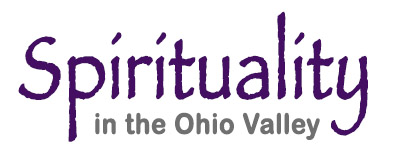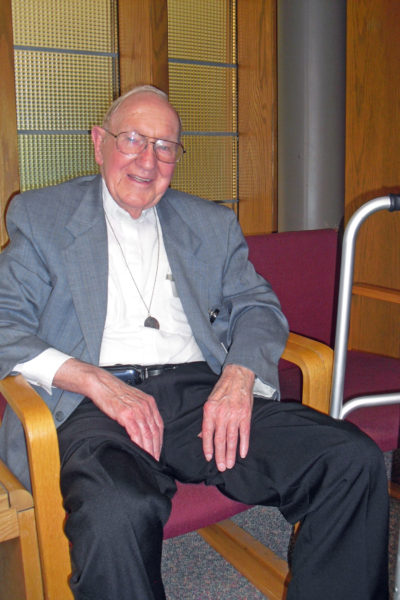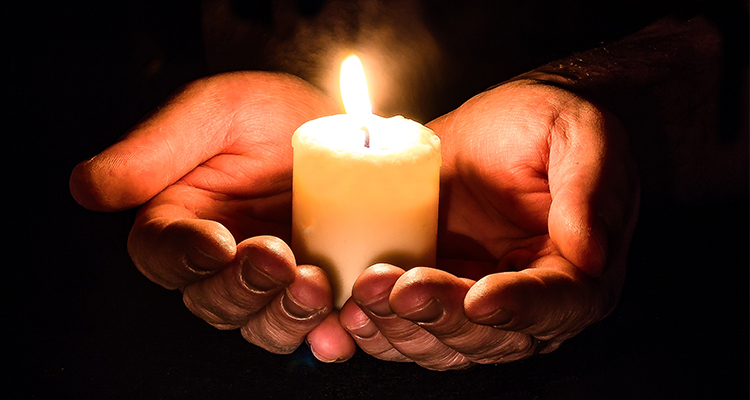Editor’s note: As part of a continuing series on how Wheeling residents express spirituality, today’s post features a ministry that is the polar opposite of America’s mega-church trend. This pastor has a congregation of one.

Bill Boyer is pretty sure the ministerial call that makes him willing to stop whatever he’s doing to go pray with one hope-starved soul started in the depths of the Great Depression. That was when death left a 2-year-old Boyer and his infant brother motherless, and when grandparents and a tiny Pennsylvania community reached out their hearts and arms in God’s stead.
 “That was an important part of my foundation, everybody caring for their own, from cradle to grave,” said Boyer. At 87, he is the sole chaplain to psychiatric patients at Ohio Valley Medical Center in downtown Wheeling. “Every baby was born at home. Every adult died at home.”
“That was an important part of my foundation, everybody caring for their own, from cradle to grave,” said Boyer. At 87, he is the sole chaplain to psychiatric patients at Ohio Valley Medical Center in downtown Wheeling. “Every baby was born at home. Every adult died at home.”
His grandparents also took in another relative who was partially paralyzed by a stroke until her death. “Those experiences taught me the importance of caring for people. That was just a way of life.”
So, when a pastoral temp in the community’s small parish suggested the church could use a teen Boyer in the ministry, he agreed. By his junior year of high school, he committed to a path that led to college, seminary and specialized chaplaincy training. “There was no blinding light (type of calling), just a growing awareness of what God wanted me to do.”
Focusing on the Small
And, when he felt God further leading him to specialize in difficult assignments, he went. To small, rural parishes within the United Church of Christ that were hard pressed to find a pastor and to a chaplaincy in an institutional setting for the mentally disabled.
Sitting in the OVMC chapel in a rare moment of rest, Boyer smiled as he reflected on his life path, which has included 22 years of volunteer chaplaincy since his official “retirement” from broader pastoral duties. “Once, I told my youngest son, ‘Sometimes I didn’t know if God knew what He was” doing, some of the situations He called me into.’ ”

The son, one of four children Boyer and his late wife of 56 years raised during their unusual ministry, responded simply. “Dad, I never knew you to run from a challenge.”
Indeed, Boyer does not, even today. Bowed with his own health issues, the St. Clairsville resident still walks head-on into ministerial areas that even other pastors might shrink from. Addiction, suicide attempts, criminality – he’s encountered it all.
“To be a chaplain requires a sound theological background,” Boyer said. “But you cannot be judgmental or exclusive.” A chaplain must also not be inappropriately zealous, he added. He does not believe it is right to proselytize someone who’s in crisis, who cannot necessarily make an informed decision about faith.
Instead, he tries to listen carefully enough that he can pray with precision and spark a sense of hope, mindful that OVMC psychiatric patients are only admitted for short-term stays. “It may be the only opportunity I have to help them. I may not have a second chance.”
He has a series of questions that he likes to ask patients before he prays with them. “How do you feel about yourself? What do you feel about God? Do you feel God is at work in your life in recent days?”
A number of the patients who request visits with or are referred to Boyer are hospitalized because they have attempted suicide. He especially tries to guide these individuals into an awareness that, while life may be less than what they desire, God has used someone or some circumstance to keep them from death or they wouldn’t be talking with him.
“I try to help them see that God’s working through people … I try to help them feel good about themselves, to be aware that their life isn’t all bad.”
God With Skin On
It is perhaps a help to patients that Boyer embodies that spiritual ideal. At 87 (and a half, he adds with a grin), Boyer uses a walker to traverse hospital halls. He has difficulties with his back, heart and hearing, but doesn’t let that stop him from coming out on call on weekdays and offering a worship service most Sundays in the adult unit.
“The good Lord keeps me going,” he said. “I could easily justify putting myself on a shelf. I just refuse to. God is calling me to do this. … I just feel I’m doing what I should be doing as a Christian. I’m using my skills, my training and experience caring for the least of them.”
And, they care right back, he noted. Fishing into a pouch hanging from the front of his walker, Boyer pulls out a thank you card from a patient so young she drew pictures of a hill-shaped church and addressed it to “the preachure.”
“It sends chills up my spine,” he said of times when a patient expresses an awareness of God, or at least with the God with skin on they sometimes see in Boyer. “The calling is keeping me alive.”
Vickie Grandstaff, coordinator of OVMC’s chaplaincy program, said that connection is what it’s all about. “They really enjoy it,” Grandstaff said of patients’ response to ministerial visits.
In addition to Boyers’ specialized service in the psychiatric units, about a dozen other area ministers volunteer their time as chaplains at OVMC, serving on call round the clock for a week at a time, she said. Other area ministers are also welcomed into the hospital to visit their own church members and attendees.
With decades of chaplaincy tucked into his jacket, Boyer considers such a ministerial team critical to patients’ health. The body, mind and spirit are so integrated, he envisions an ideal in which all healthcare workers would be trained in spirituality, only calling in chaplains for special situations.
• Nora Edinger writes from Wheeling, W.Va., where she is part of a three-generation, two-species household. A long-time journalist, she now writes in a variety of print and e-venues, including her JOY Journal blog at noraedinger.com. Her first work of fiction, a Christian beach read called “Dune Girl,” is available on Amazon Kindle.




